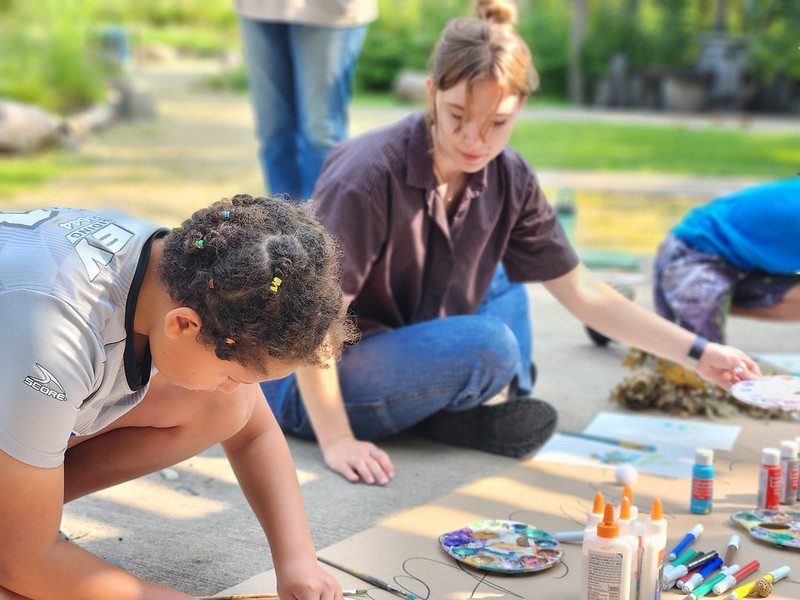
By: Andrea Wallace Noble
Severson Dells Nature Center, Education Programs Manager
At Severson Dells Nature Center, the heart of our mission is to connect people with nature. This summer, we were able to do just that through our summer Readings from the Rookery program, which brought the wonders of the natural world to life for children and their families through interactive read-aloud sessions.
This unique program introduced children to STEM (science, technology, engineering and math) concepts through engaging themes of nature and ecology. We are incredibly grateful to our friends at United Way, whose support has enabled us to host four free Readings from the Rookery sessions this past summer.
Each Readings from the Rookery session begins with a captivating story carefully selected to spark interest in various aspects of the natural world, such as pollination, the lifecycle of trees, nocturnal animals, and animal adaptations. As children gathered to listen, they asked questions and shared their observations, making each session an interactive learning experience. After the read-aloud, the adventure continued with a hands-on craft activity related to the story, allowing children to express their creativity and reinforce their learning through play. These crafts served as a tactile reminder of what they learned, from building paper flowers to crafting nocturnal animal masks.
The program culminated with a guided hike through our beautiful forests and prairies, where children and their families explored the themes discussed in the story in real life. These hikes offered an opportunity to observe nature up close, enhancing understanding and appreciation of the environment. The excitement of discovering a butterfly feeding on wildflowers or observing the dense canopy of trees turned the theoretical knowledge from the stories into something tangible and real.
Connecting children with nature is more important now than ever before. In a world increasingly dominated by technology and indoor activities, spending time outdoors helps children develop a sense of wonder and respect for the environment. Research shows that children who engage in outdoor play tend to be more creative, healthier, and better at problem-solving. By engaging with the natural world, children also learn about ecosystems, biodiversity, and sustainability, building a foundation for future environmental stewardship.

